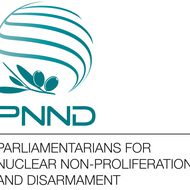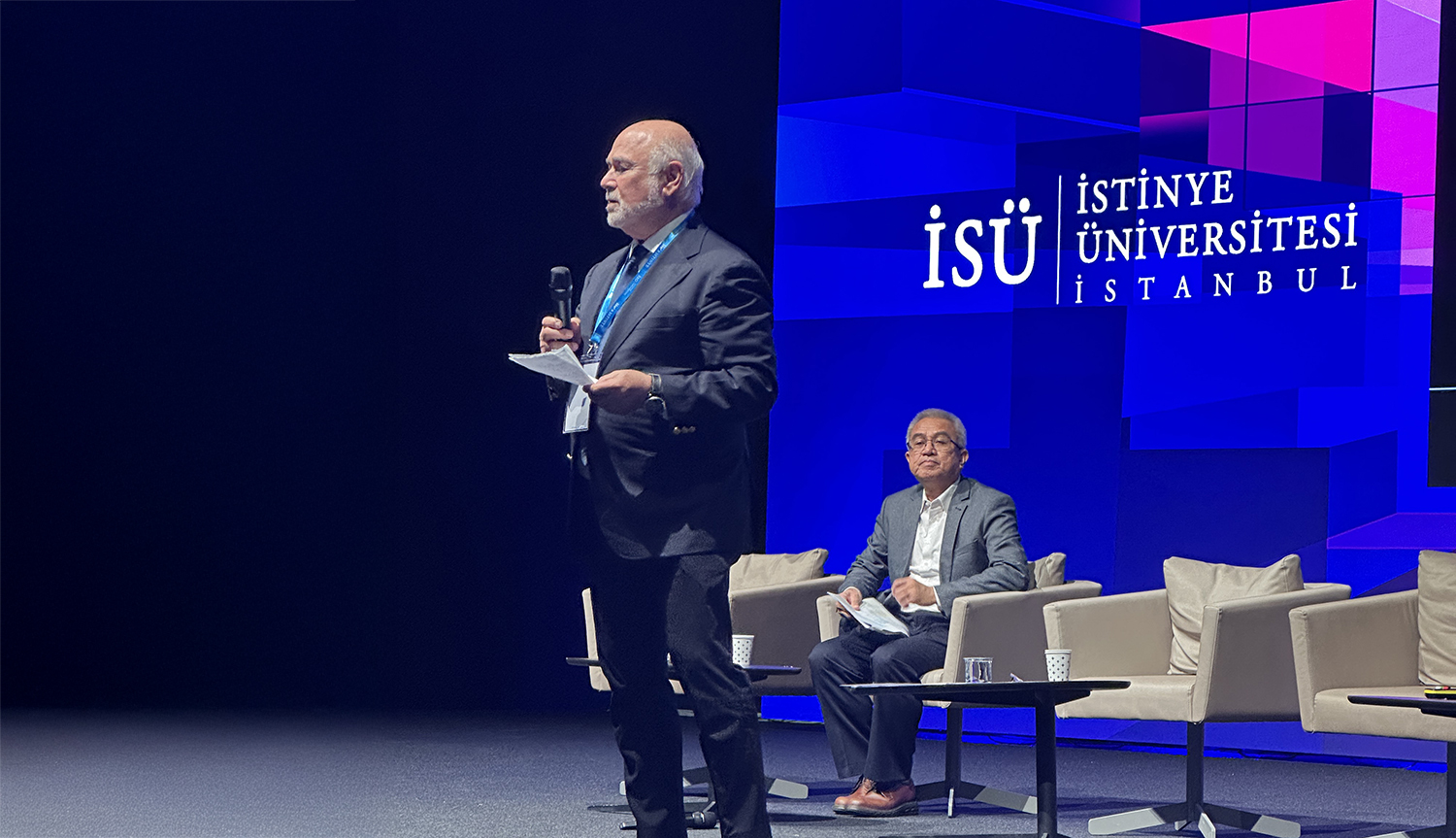January 2013
Parliamentarians for Nuclear Non-Proliferation and Disarmament (PNND), a program of GSI, published the thirty-third edition of its global newsletter, PNND Update. This multimedia-rich resource includes vital information for parliamentarians, their staff, and advocates regarding recent projects, news, updates on nuclear weapon-free zones, upcoming events, and new additions to the PNND Council.
To view the full version, including embedded videos and links to more information, visit the PNND website.
The core role of parliaments in ratifying treaties and adopting implementing legislation gives them tremendous potential to extend the rule of law even more deeply into the domain of disarmament. Yet disarmament and nonproliferation can also appear to legislators as remote from daily concerns. This is where this Handbook has most to offer. It brings disarmament down to earth, offering specific guidance on why it matters and how to achieve it. UN Secretary-General Ban Ki-moon, Message for the launch of the IPU/PNND Handbook
1. Parliamentary Handbook – Get your copy now!
 |
On United Nations Day (24 October 2012), PNND and the Inter Parliamentary Union (IPU) released a Parliamentary Handbook on Supporting Nuclear Nonproliferation and Disarmament, (in English and French) which has been prepared to assist parliaments and parliamentarians to implement the recommendations from a ground-breaking resolution adopted by consensus by the IPU in 2009 (available in English and French).
2. Twenty-three parliaments in PNND video
In order to encourage parliamentarians to use the IPU/PNND handbook back in their parliaments, PNND and the World Future Council have produced a video of PNND members speaking in front of their parliaments on the role of parliamentarians to advance nuclear non-proliferation and disarmament. The video includes parliamentarians from twenty-three countries passing the classic nuclear disarmament and pace symbol from parliament to parliament around the world. The video was shown at the launch of the IPU handbook in Quebec City, and at subsequent events (World Future Council assembly in Abu Dhabi, Basel Peace Office opening…) and is also posted on You Tube for global viewing.
3. ATOM Project launched at PNND Assembly
“I myself have no arms to hug you, but a heart as big as the open space of Kazakhstan ready to embrace the world for peace and nuclear disarmament.
Karipbek Kuyukov, Honorary ATOM Project Ambassador
 |
|
|
Honorary ATOM Project Ambassador Mr. Karipbek Kuyukov
|
The ATOM Project (Abolish Testing Our Mission), an exciting new initiative to build global support for nuclear abolition, was launched at the PNND annual assembly in Astana, Kazakhstan on 29 August 2012 – the International Day Against Nuclear Tests. The ATOM project highlights the catastrophic humanitarian consequences of the use of nuclear weapons – particularly the nuclear tests conducted in Kazakhstan that have adversely affected the health and lives of nearly 2 million people. The images of the survivors, though sometimes difficult to witness, are featured in the campaign in order to raise awareness surrounding the damage nuclear testing can cause.
4. UN breaks the disarmament deadlock?
The 67th session of the United Nations General Assembly, meeting in New York from September to November 2012, adopted two innovative nuclear disarmament resolutions that could break the 16-year old deadlock in multilateral nuclear disarmament negotiations.
Parliamentarians can call on their governments to give two important disarmament deadlock-breaking initiatives their highest support and most serious consideration.
5. 389 MEPs support nuclear zero
 |
|
|
PNND member Tarja Cronberg MEP has joined with three other Members of the European Parliament (Jaroslaw Walesa, Reinhard Bütikofer, and Janusz Zemketo) to launch a Written Declaration of Support for the Global Zero Action Plan for the phased and verified elimination of all nuclear weapons worldwide. The declaration, which currently has the support of 389 MEPs, ‘encourages the US and Russian Governments to reduce their arsenals to a total of 1 000 nuclear weapons each and to remove their tactical nuclear weapons from the European continent;’ and ‘calls on all nuclear weapons countries to participate in multilateral negotiations on the phased and verified elimination of all nuclear weapons worldwide and the establishment of a verification system that includes intrusive, unrestricted inspections.’
6. Scotland, independence and nukes!
On December 5 the Scottish National Party (SNP), the current governing party, released its policy on Independence and Defence, outlining SNP policy should Scotland become independent as a result of the Independence Referendum in Autumn 2014.
 |
|
On 25 October, the UK Parliament’s Scottish Affairs Committee published a report on The Referendum on Separation for Scotland: Terminating Trident-Days or Decades? which confirms that Scottish independence creates the prospects of unilateral nuclear disarmament being imposed upon the Royal Navy and the UK government.
7. CTBTO Faces – video interview with PNND
In mid 2012, the Comprehensive Test Ban Treaty Organisation (CTBTO) launched a video series called CTBTO Faces which interviews nuclear disarmament leaders around the world. On 2 January 2013, the CTBTO released a CTBTO Faces video featuring PNND Global Coordinator Alyn Ware. Alyn discusses the nuclear tests in the Pacific – which motivated him to become active in nuclear disarmament – plus other themes including the role of parliamentarians, prospects for nuclear disarmament and the role that the CTBTO can play in building the framework for a nuclear-weapons-free world.
8. Nobel Peace Prize – time to nominate!
Its nomination time for the Nobel Peace Prize. Four years ago President Obama was nominated for his vision for a nuclear weapon-free world, and for taking some initial steps. Is now the time to give the award to a person and/or organisation that is making an effective global contribution to implementing this vision? Any parliamentarian is able to make a nomination (See Who may submit nominations). All nominations must be sent to the Nobel Peace Committee by 31 January.
The Nobel Committee does not reveal the nominees (only the winner). However, nominators are free to publicise their nominations if they so wish.
Contact Nobel Peace Committee, Henrik Ibsens gate 51, 0255 OSLO, Norway. Tel: +47 22 12 93 00. Fax: +47 94 76 11 17. Email: [email protected]
9. Basel hosts new PNND Head Office
 |
|
On 16 November 2012, PNND opened its new head office in Basel, Switzerland, as part of the Basel Peace Office: Advancing International Peace and Security through Nuclear Abolition. The other partners in the Basel Peace Office are the Middle Powers Initiative, World Future Council, Global Security Institute, Swisspeace, International Physicians for the Prevention of Nuclear War (Switzerland), University of Basel Sociology Department and the Canton (municipality) of Basel.
The Basel Peace Office brings together key constituencies to build effective programs for nuclear abolition. These include, the Climate-Nuclear Nexus, Nuclear Abolition Forum, Engaging Legislators, the Framework Forum, Sports and Peace and Advancing Nuclear Weapon Free Zones. The Basel Peace Office was opened with a reception on 16 November followed by a symposium on 17 November on the Humanitarian Consequences of Nuclear Weapons (See Basel President Guy Morin opens the Basel Peace Office.)
10. Nuclear weapon-free zone updates
This PNND Update 33 includes information on progress towards nuclear weapon-free zones in the Middle East, North East Asia, and the Arctic. Click here to read more.
11. Upcoming PNND events
Read PNND Update 33 online for more information about upcomign PNND events in the French Senate in Paris, Berlin, Oslo, the European Parliament in Brussels, the IPU Assembly in Quito, Haifa, Edinburgh, and Basel.
12. PNND welcomes new Council
PNND thanks the Co-Presidents and Council Members who served in 2012, commends those who were re-appointed at the PNND Assembly in Astana on 30 August, and welcomes new Co-Presidents and Council members.
New Council Members hail from Turkey, Costa Rica, Canada, Jordan, Australia, Lebanon, Kazakhstan, Thailand, France, Egypt, Palestine, Pakistan and the Phillippines. Click here to read about the new Council and the new Co-Presidents.
New Co-Presidents:
Mani Shankar Aiyar, India
Mani Shankar Aiyar is a member of the Rajya Sabha (Upper House). He began his career as a an Indian diplomat before becoming the Private Secretary for Indian Prime Minister Rajiv Gandhi, during which time he assisted Gandhi draft the Rajiv Gandhi Plan for Nuclear Disarmament and a Non-violent World Order. He then served as a member of Lok Sabha (Lower House) representing the Indian National Congress party until 2009. He served as Union Cabinet Minister for Petroleum and Natural Gas from May 2004 through January 2006 and Ministry of Youth Affairs and Sports till 2008. Mani Shankar is author of a number of books including Remembering Rajiv (1992), Pakistan Papers (1994), Knickerwallahs, Silly-Billies and Other Curious Creatures (1995), Confessions of a Secular Fundamentalist (2004) and A Time of Transition: Rajiv Gandhi to the 21st Century (2009).
Bill Kidd MSP (Scotland)
Bill Kidd has served as a member of the Scottish Parliament for the Scottish Nationalist Party for two years. During that time he has introduced a number of motions supporting nuclear disarmament and critical of the British deployment and home-basing of nuclear submarines in Faslane, Scotland. Mr Kidd has also participated in international disarmament initiatives, and has assisted Scottish First Minister Alex Salmond in efforts for Scottish representation in international disarmament forums.
Mani and Bill join re-appointed Co-Presidents Saber H Chowdhury MP (Bangladesh), Senator David Coltart (Zimbabwe), Senator Rosario Green (Mexico), Hideo Hiraoka MP (Japan), Mi-Kyung Lee MP (Republic of Korea), Rep Ed Markey (United States), Baroness Sue Miller (United Kingdom), Marit Nybakk MP (Norway) and Uta Zapf MP (Germany).
New Council Members:
Dr. Aytug Atici, Turkey
Dr. Aytug Atici is a medical doctor and a lawmaker from the Republican People’s Party. He has promoted the proposal for a Middle East Zone Free of Nuclear Weapons and other WMD in Turkey, succeeding in securing the endorsement of over 40 parliamentarians for the joint global parliamentary statement on this issue.
Martin Monestel, Costa Rica
Martin Monestel is Vice-President of the Costa Rican National Assembly. Professor, artist, and international speaker on the inclusion of people with disabilities.
Paul W. Dewar, MP, Canada
Paul Dewar, is an educator and politician from Ottawa, Ontario. He is the New Democratic Party (NDP) Member of Parliament for the riding of Ottawa Centre. Dewar was first elected to the House of Commons in the 2006 federal election. He served as the Official Opposition Critic for Foreign Affairs, until he left the post in October 2011 to run for the leadership of the NDP.
Abdullah Ensour MP, Jordan
Abdullah Ensour has served in a number of key positions in the Jordanian parliament, including deputy prime minister in 1998, foreign minister in 1989, minister of planning and international cooperation in 1984, and minister of information in 1998. On 10 October 2012, Jordan’s King Abdullah II appointed Abdullah Ensour as Prime Minister to prepare for the country’s first post-Arab Spring parliamentary election.
Harry Jenkins MP, Australia
Harry Jenkins has been representing the Division of Scullin, Victoria, since the 1986 by-election for the Australian Labor Party. He is the longest-serving Labor member of the House of Representatives (over 26 years). He was Deputy Speaker 1993-1996 and Second Deputy Speaker from 1996 to his election as Speaker in 2008 from which he resigned on 24 November 2011.
Ghassan Moukheiber MP, Lebanon
Ghassan Moukheiber is a member of the Lebanese Parliament, representing the Metn district since 2002. He is a member of the “Change and Reform” parliamentary group, Parliamentary Law and Administration committee and Rapporteur of the parliamentary Human Rights committee and member of the parliamentary Environment committee. He is Chairman of the Arab Region Parliamentarians Against Corruption, and Chair of the Global Organization of Parliamentarians Against Corruption – Global Task Force—Parliamentary Ethics Project.
Sen. Tolegen Mukhamejanov, Kazakhstan
Besides being a Senator, Tolegen Mukhamedzhanov is a composer, poet, laureate of the Parasat Medal, a state prize of the Republic of Kazakhstan. He is also Professor, President of the international association Peace Through Culture, Co-Chair of the World Forum of Spiritual Culture and Director of the State Opera and Ballet Theatre Astana Opera. Senator Mukhamedzhanov composed the anti-nuclear song that became the anthem of the Nevada-Semipalatinsk Movement – which successfully campaigned for the closing of the Soviet nuclear test site in Kazakhstan.
Claudio Monge, Costa Rica
Claudio Monge is leader of the Citizen Action Party. Chairman of the Environmental Commission, Secretary of the Human Rights Commission and member of the Agricultural Commission and Secretary of the Human Rights.
Alongkorn Ponlaboot, Thailand
Alongkorn Ponlaboot is a Member of Parliament, Democrat Party, Phetchaburi province and also Deputy Prime Minister (Shadow Cabinet), Democrat Party. His major positions include President of Alternative Energy Institute of Thailand Foundation, and Advisor to the Standing Committee on Energy of the House of Representatives. He was a Vice Chairman of Energy Committee House of Representatives (2001-2005).
Viktor Rogalev, Kazakhstan
Member of the Mazhilis of the Parliament of the Republic of Kazakhstan of the fifth convocation, Deputy Chairman of the Committee on Foreign Affairs, Defense and Security. Member of Political Council of the People’s Democratic Party “Nur Otan”, elected by the party list.
Senator François De Rugy, France
François de Rugy is a member of the National Assembly of France. He represents the Loire-Atlantique department, as a member of the Democratic and Republican Left, a parliamentary group that includes his political party Europe Ecology – The Greens.
Anwar El Sadat, Egypt (Alumni Member)
Anwar El Sadat served as the Chair of the Egyptian Parliament (Shoura) Human Rights Committee until the Shoura was suspended by the transitional council. He was also a member of the Constitutional Committee .
Senator Mushahid Sayed, Pakistan
Mushahid Hussain Sayed has served in the cabinet as federal minister of information from 1997 to 1999 in the Nawaz Sharif government. He was elected to the Senate of Pakistan in 2003, and reelected in 2012. He was also selected the Secretary General of the Pakistan Muslim League.
Senator Richard Tuheiava, France
Richard Tuheiava is a Member of the Committee on Foreign Affairs, Defence and Armed Forces Vice-President of the Senate overseas delegation of the Senate of France, representing French Polynesia. He is a member of the Socialist Party.
Jose Claveria de Venecia, Jr. (Alumni Member)
Jose Claveria de Venecia, Jr. also known as JDV or Joe De V is a former Speaker of the House of Representatives of the Philippines, serving from 1992 to 1998 and from 2001 to 2008. As Speaker, he was the fourth highest ranking official of the Philippines. He was the former president of the Philippines’ dominant party, LAKAS-CMD.
They are joined on the PNND Global Council by re-appointed members Helen Clark (Head of UNDP, Honorary Member), Senator Roméo Dallaire (Canada), Rep Dennis Kucinich (United States), Jeremy Corbyn MP (United Kingdom), Senator Michelle Demessine (France), Paul Dewar MP (Canada), Paul Hutchison MP (New Zealand), Harry Jenkins MP (Former Speaker of Australian Parliament), Birgitta Jónsdóttir MP (Iceland), Marianne Malak Kamal MP (Egypt, youngest member of the Egyptian parliament), Roderich Kiesewetter MP (Deputy Chair of the German Parliament Subcommittee on Disarmament and Arms Control), Dov Khenin MP (Israel), Taro Kono MP (Japan), Hallgeir Langeland MP (Norway), Dirk van der Maelen MP (Belgium), Christa Markwalder MP, (Switzerland), Federica Mogherini MP (Italy), Christine Muttonen MP (Austria), Holger Nielsen MP (Deputy Prime Minister, Denmark), Senator David Norris (Ireland), Angelika Beer MP (Chair, Parliamentarians for Conflict Prevention), Christer Winbäck MP (Parliamentary Forum on Small Arms and Light Weapons) and Alumni members , Senator Abacca Anjain Maddison (Marshall Islands), Raphael Chegeni (Tanzania), Marian Hobbs (New Zealand), Sergei Kolesnikov (Russia), Alexa McDonough (Canada), Senator Douglas Roche (Canada), Edine von Herold (Costa Rica), Issam Makhoul (Israel) and Rudolph Rechsteiner (Switzerland).
![]()
Jonathan Granoff is the President of the Global Security Institute, a representative to United Nations of the World Summits of Nobel Peace Laureates, a former Adjunct Professor of International Law at Widener University School of Law, and Senior Advisor to the Committee on National Security American Bar Association International Law Section.







